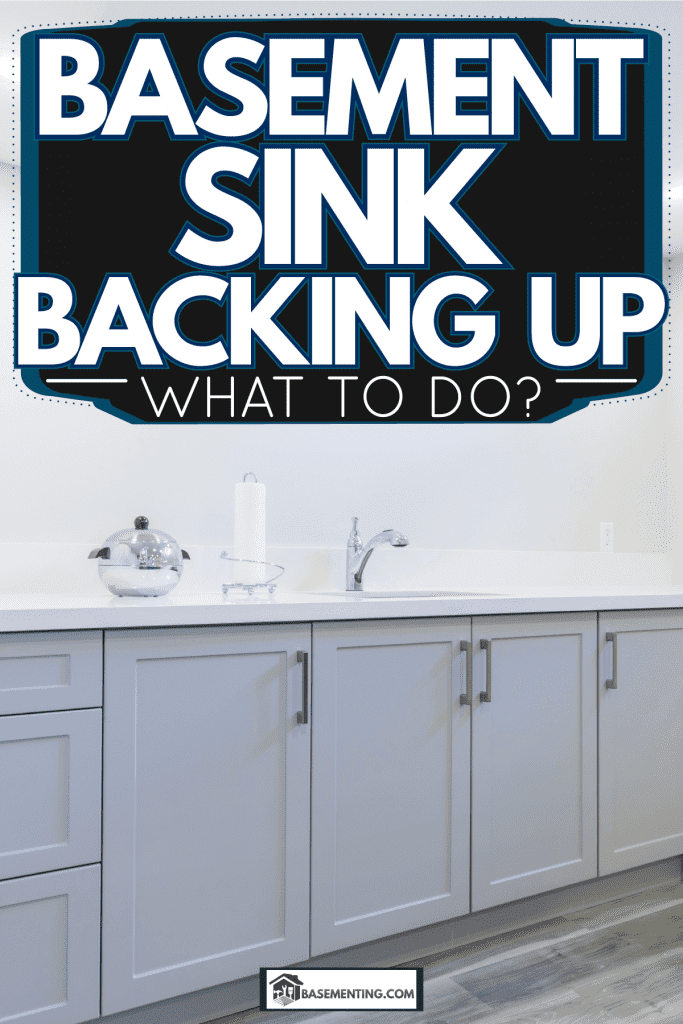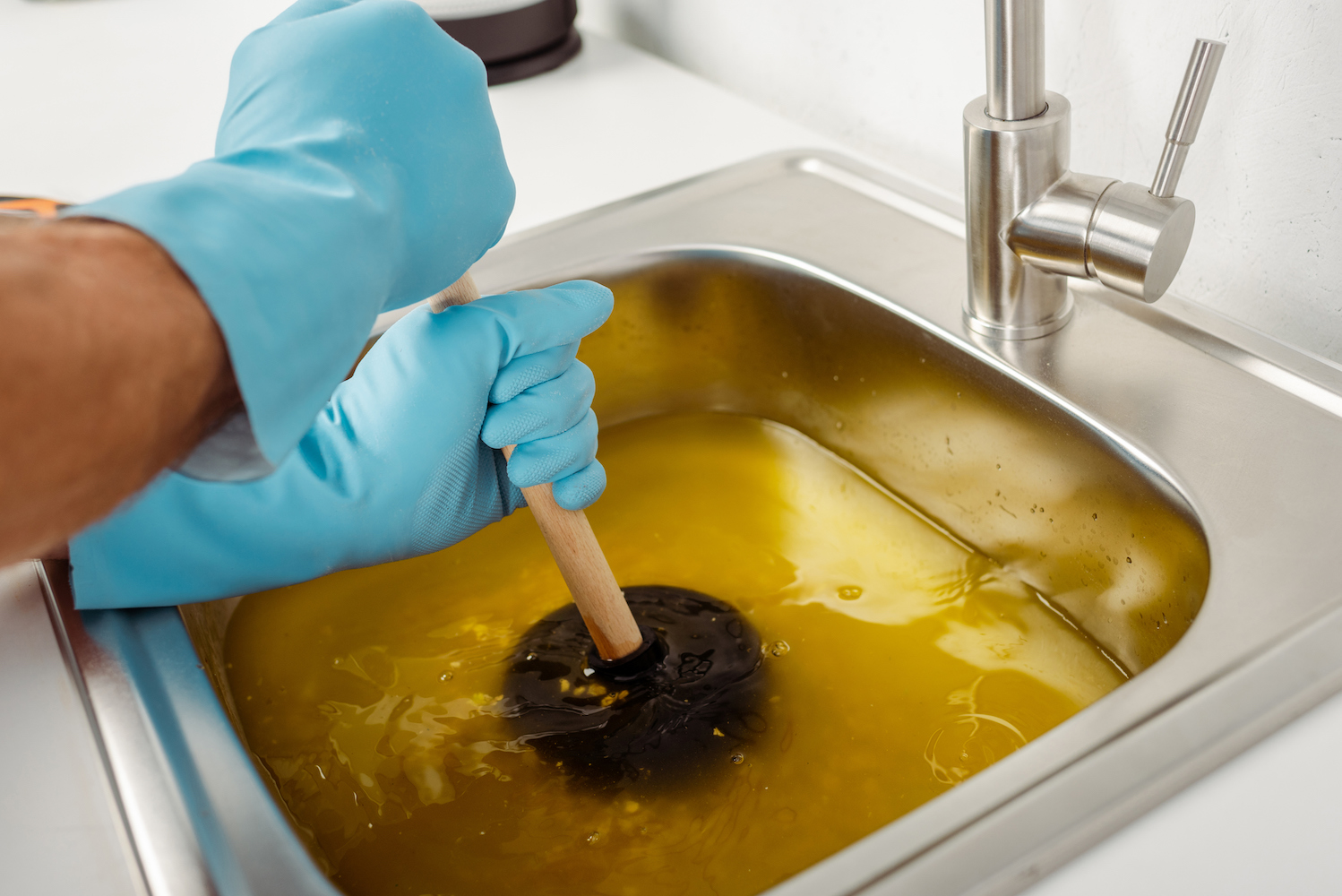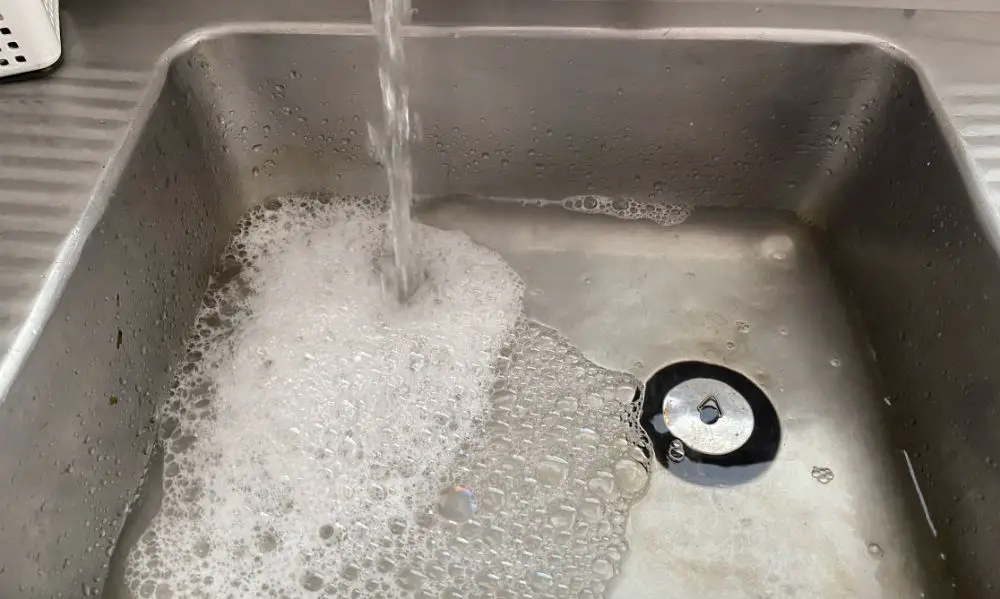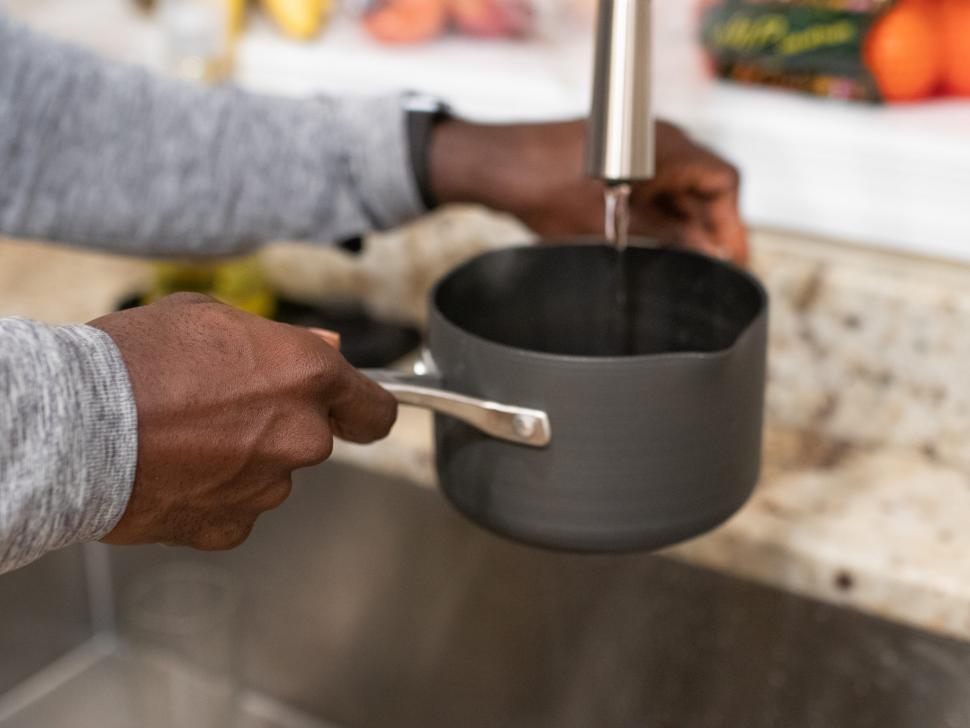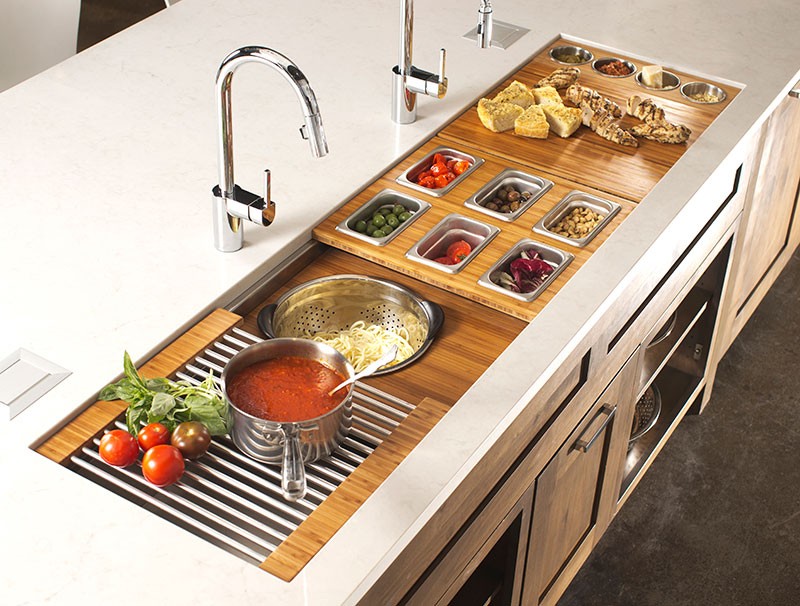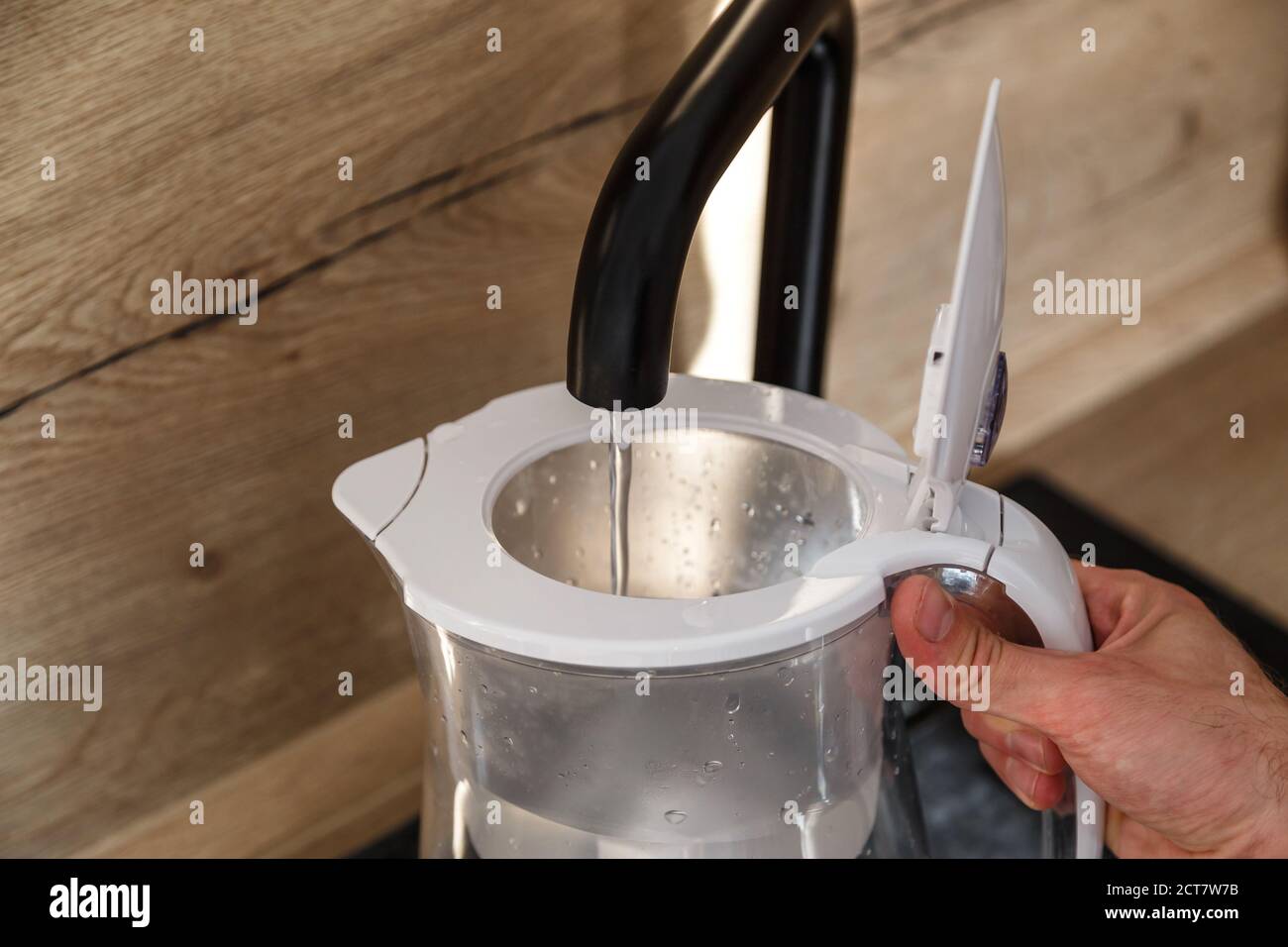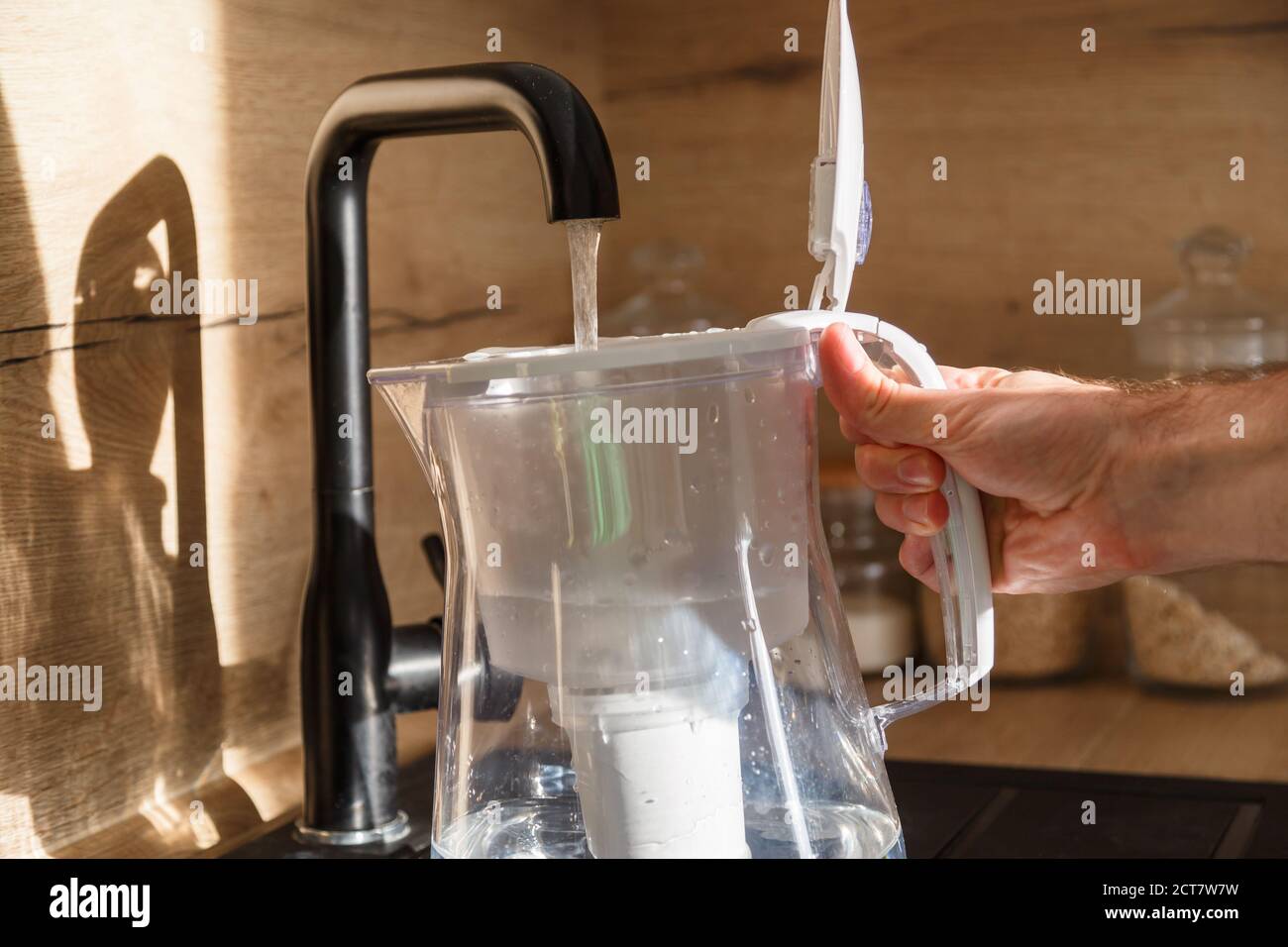If you've ever experienced the frustration of a kitchen sink backing up with water, you know how much of a hassle it can be. Not only does it make it difficult to wash dishes, but it can also lead to unpleasant odors and potential damage to your plumbing system. Luckily, unclogging a kitchen sink is a relatively simple task that you can do yourself with a few tools and some basic know-how. The first step to unclogging a kitchen sink is to determine the cause of the backup. It could be as simple as a build-up of food particles or grease, or it could be a more serious issue such as a clogged pipe or a damaged garbage disposal. Once you've identified the cause, you can choose the appropriate method to fix the problem.Unclog a Kitchen Sink
If the cause of your backed up kitchen sink is a build-up of food particles or grease, there are a few different methods you can try to clear the clog. One popular method is to use a plunger. Fill the sink with enough water to cover the rubber part of the plunger, then place the plunger over the drain and pump up and down vigorously. This can help to dislodge the clog and allow it to flow down the drain. If the plunger method doesn't work, you can also try using a plumbing snake. This long, flexible tool can be inserted into the drain and used to break up and remove the clog. Another option is to use a mixture of baking soda and vinegar. Simply pour half a cup of baking soda down the drain, followed by half a cup of vinegar. Let it sit for a few minutes, then pour boiling water down the drain to help dissolve the clog.How to Fix a Backed Up Kitchen Sink
If your kitchen sink is still backing up after trying these methods, it may be a sign of a more serious issue. The next step would be to check your garbage disposal. If you have one, it may be clogged or damaged and in need of repair or replacement. You can also try removing the trap under the sink and cleaning it out, as this can often be a common area for clogs to occur. If these methods still don't solve the problem, it may be time to call in a professional plumber. They will have the tools and expertise to properly diagnose and fix the issue, saving you time and hassle in the long run.Kitchen Sink Backing Up? Here's What to Do
If you prefer to try and fix the problem yourself before calling in a professional, there are a few more DIY solutions you can try. One is to use a wet/dry vacuum to suck out the clog from the drain. This method can be effective, but it can also be messy and may not work for more serious clogs. You can also try using a chemical drain cleaner, but be cautious as these products can be harsh on your pipes and may not work for all types of clogs. Another option is to use a bent wire hanger to try and hook and remove the clog from the drain.DIY Solutions for a Backed Up Kitchen Sink
Understanding the common causes of a backed up kitchen sink can help you prevent future clogs. Some of the most common causes include pouring grease or oil down the drain, putting large pieces of food or non-food items down the garbage disposal, and not properly cleaning out the sink strainer or trap. By being mindful of what you put down your kitchen sink, you can help prevent clogs from occurring.Common Causes of a Backed Up Kitchen Sink
The best way to deal with a backed up kitchen sink is to prevent it from happening in the first place. Here are a few tips to help keep your kitchen sink running smoothly:How to Prevent Your Kitchen Sink from Backing Up
If you're not comfortable or able to unclog your kitchen sink yourself, it's best to leave it to the professionals. They have the experience, tools, and knowledge to properly diagnose and fix any plumbing issues, saving you time and potential damage to your plumbing system. In addition to fixing a backed up kitchen sink, a professional plumber can also offer preventative maintenance services, such as hydro jetting, to help keep your drains clear and prevent future clogs.Professional Plumbing Services for a Backed Up Kitchen Sink
It's important to be aware of the signs that your kitchen sink may be backing up, so you can address the issue before it becomes a major problem. Some common signs to look out for include slow draining water, gurgling noises coming from the drain, foul odors, and water pooling around the drain.Signs That Your Kitchen Sink is Backing Up
If you're dealing with a clogged kitchen sink, the first step is to try and determine the cause of the clog. This will help you choose the appropriate method to clear it. If none of the DIY solutions work, it may be time to call in a professional plumber. They will have the tools and expertise to properly diagnose and fix the issue, ensuring your kitchen sink is back up and running in no time.How to Clear a Clogged Kitchen Sink
A kitchen sink filling up with water is a clear sign of a clog. If this happens, it's important to act quickly to prevent any potential damage. First, turn off the water supply to your sink to prevent any further water from filling up. Then, try one of the DIY methods mentioned above to clear the clog. If these don't work, it's best to call a professional for assistance. In conclusion, a backed up kitchen sink can be a frustrating and inconvenient problem, but with the right knowledge and tools, it can be easily fixed. By understanding the common causes, taking preventative measures, and knowing when to call in a professional, you can keep your kitchen sink running smoothly and avoid any potential disasters. Remember, it's always better to address a clog sooner rather than later to prevent further damage and keep your kitchen functioning properly.What to Do When Your Kitchen Sink is Filling Up with Water
Avoiding and Fixing a Backed Up Kitchen Sink

Causes of a Backed Up Kitchen Sink
 A backed up kitchen sink can be a major inconvenience for any homeowner. Not only does it disrupt daily routines, but it can also lead to unpleasant odors and potential water damage. There are a few common causes for a backed up kitchen sink, including clogged pipes, a malfunctioning garbage disposal, and a main sewer line blockage. These issues can be caused by a combination of factors, such as food particles, grease buildup, and foreign objects being flushed down the drain.
A backed up kitchen sink can be a major inconvenience for any homeowner. Not only does it disrupt daily routines, but it can also lead to unpleasant odors and potential water damage. There are a few common causes for a backed up kitchen sink, including clogged pipes, a malfunctioning garbage disposal, and a main sewer line blockage. These issues can be caused by a combination of factors, such as food particles, grease buildup, and foreign objects being flushed down the drain.
Preventing a Backed Up Kitchen Sink
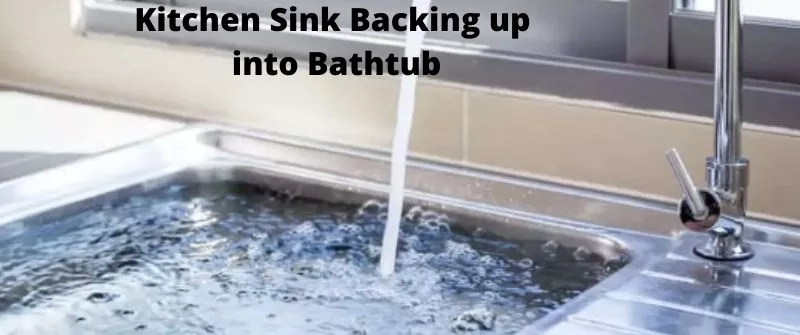 The best way to avoid a backed up kitchen sink is to prevent it from happening in the first place. This can be done by being mindful of what goes down the drain. Avoid pouring grease, oil, and coffee grounds down the sink as they can solidify and clog the pipes. Use a sink strainer to catch food particles and clean it regularly. Avoid putting fibrous foods, such as potato peels, down the garbage disposal as they can get tangled and cause blockages. Regularly pouring boiling water down the drain can also help prevent buildup.
The best way to avoid a backed up kitchen sink is to prevent it from happening in the first place. This can be done by being mindful of what goes down the drain. Avoid pouring grease, oil, and coffee grounds down the sink as they can solidify and clog the pipes. Use a sink strainer to catch food particles and clean it regularly. Avoid putting fibrous foods, such as potato peels, down the garbage disposal as they can get tangled and cause blockages. Regularly pouring boiling water down the drain can also help prevent buildup.
Fixing a Backed Up Kitchen Sink
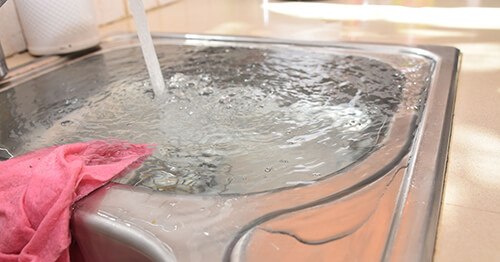 If your kitchen sink is already backed up, there are a few steps you can take to fix it. First, try using a plunger to dislodge any clogs. If that doesn't work, you can try using a drain snake to break up and remove any blockages. If the issue seems to be with your garbage disposal, try resetting it by pressing the reset button or using an Allen wrench to manually rotate the blades. If these methods don't work, it may be a sign of a more serious issue, such as a main sewer line blockage, and it's best to contact a professional plumber.
Regular Maintenance is Key
The best way to avoid a backed up kitchen sink is by regularly maintaining your plumbing system. This includes regularly cleaning and maintaining your garbage disposal, being mindful of what goes down the drain, and scheduling regular plumbing inspections and maintenance. Taking these preventative measures can save you time, money, and stress in the long run. Remember, a backed up kitchen sink should not be ignored as it can lead to bigger and more expensive problems down the line.
Conclusion
In conclusion, a backed up kitchen sink is a common household issue that can be caused by various factors. By being mindful of what goes down the drain and regularly maintaining your plumbing system, you can prevent and fix a backed up kitchen sink. However, if the issue persists, it's best to seek the help of a professional plumber. Don't let a backed up kitchen sink disrupt your daily routine and cause unnecessary stress. Take preventative measures and address the issue promptly to keep your kitchen running smoothly.
If your kitchen sink is already backed up, there are a few steps you can take to fix it. First, try using a plunger to dislodge any clogs. If that doesn't work, you can try using a drain snake to break up and remove any blockages. If the issue seems to be with your garbage disposal, try resetting it by pressing the reset button or using an Allen wrench to manually rotate the blades. If these methods don't work, it may be a sign of a more serious issue, such as a main sewer line blockage, and it's best to contact a professional plumber.
Regular Maintenance is Key
The best way to avoid a backed up kitchen sink is by regularly maintaining your plumbing system. This includes regularly cleaning and maintaining your garbage disposal, being mindful of what goes down the drain, and scheduling regular plumbing inspections and maintenance. Taking these preventative measures can save you time, money, and stress in the long run. Remember, a backed up kitchen sink should not be ignored as it can lead to bigger and more expensive problems down the line.
Conclusion
In conclusion, a backed up kitchen sink is a common household issue that can be caused by various factors. By being mindful of what goes down the drain and regularly maintaining your plumbing system, you can prevent and fix a backed up kitchen sink. However, if the issue persists, it's best to seek the help of a professional plumber. Don't let a backed up kitchen sink disrupt your daily routine and cause unnecessary stress. Take preventative measures and address the issue promptly to keep your kitchen running smoothly.
/plumber-unclogging-kitchen-sink-169270382-5797a9355f9b58461f27f024.jpg)




:max_bytes(150000):strip_icc()/how-to-unclog-a-kitchen-sink-2718799_sketch_FINAL-8c5caa805a69493ab22dfb537c72a1b7.png)







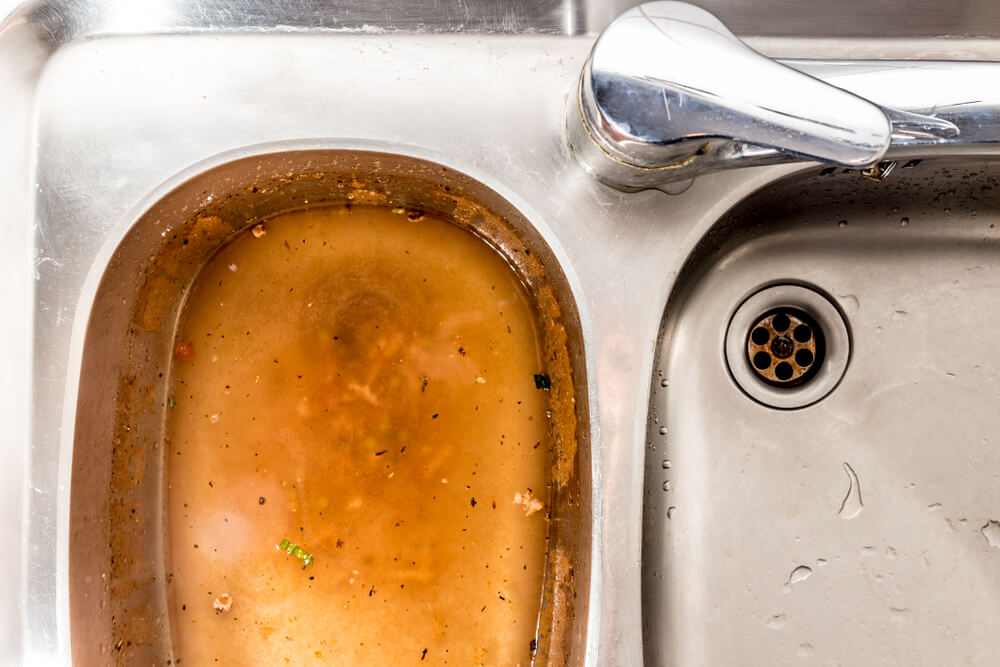
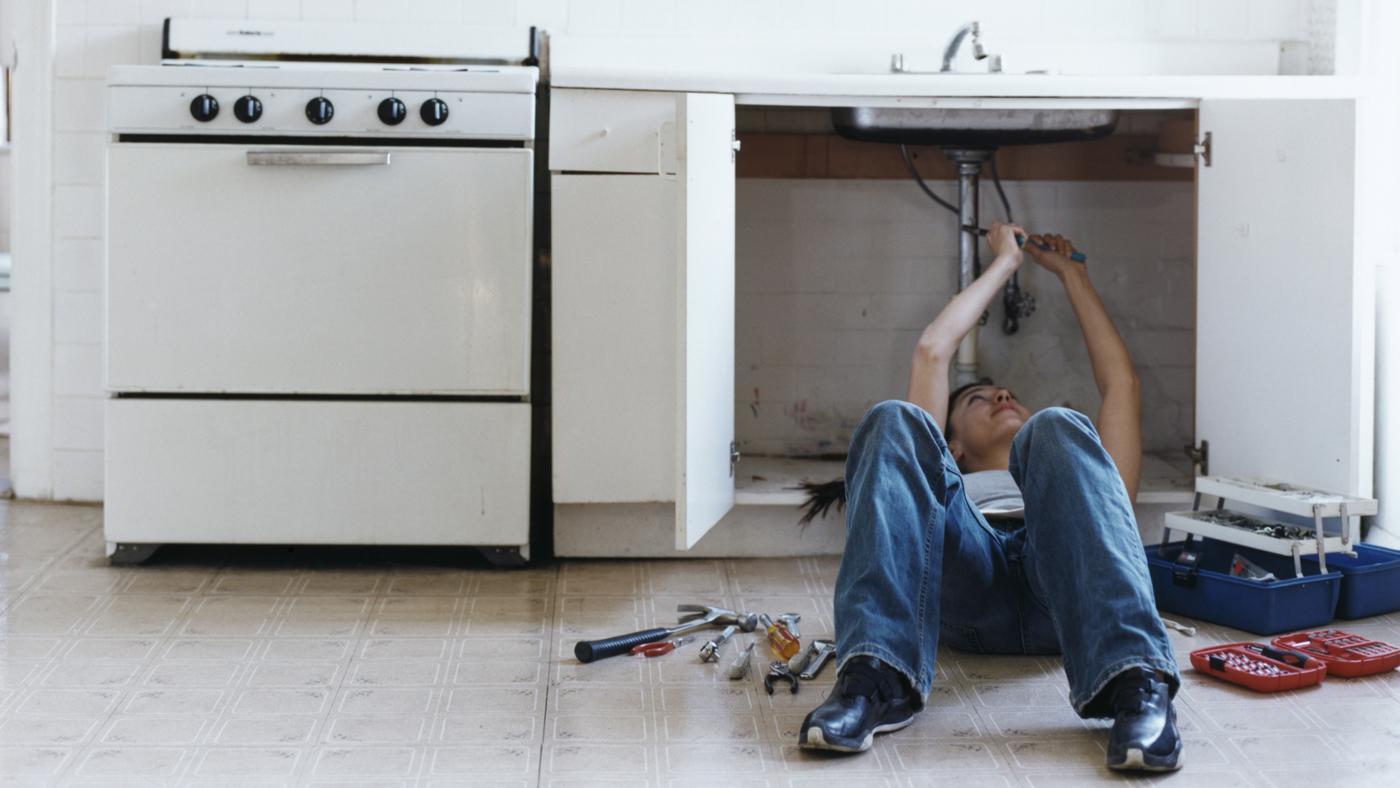





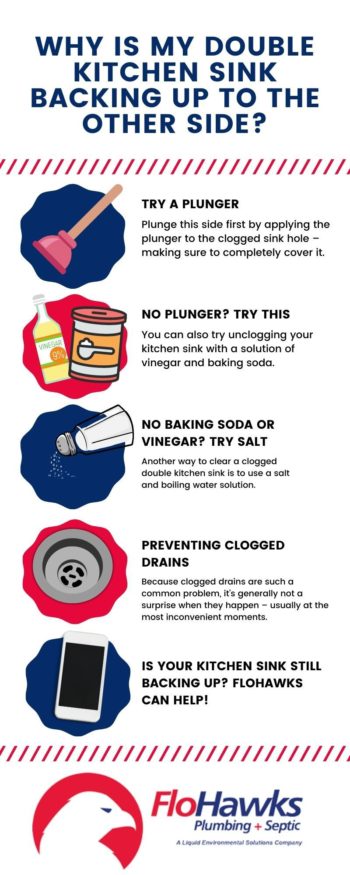


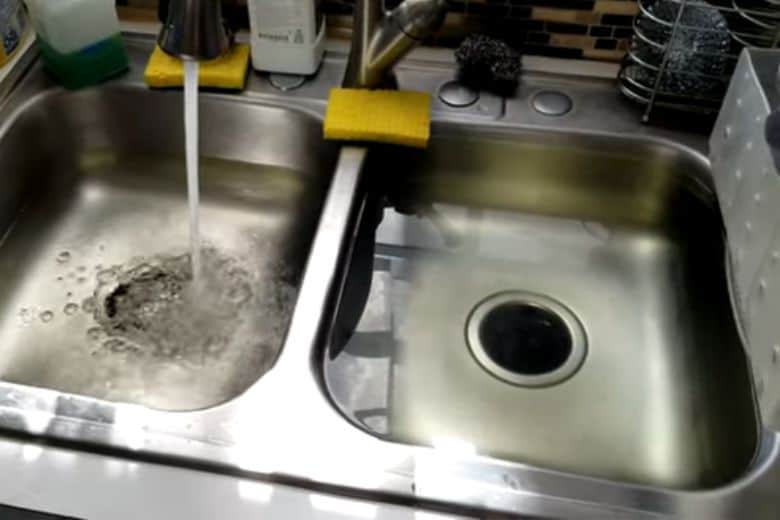

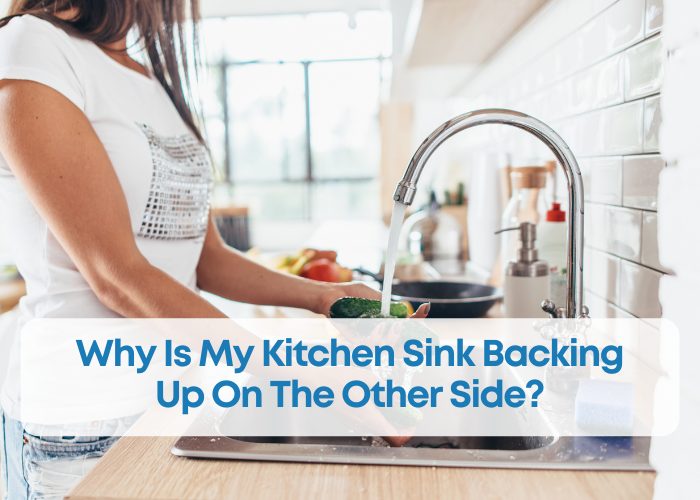




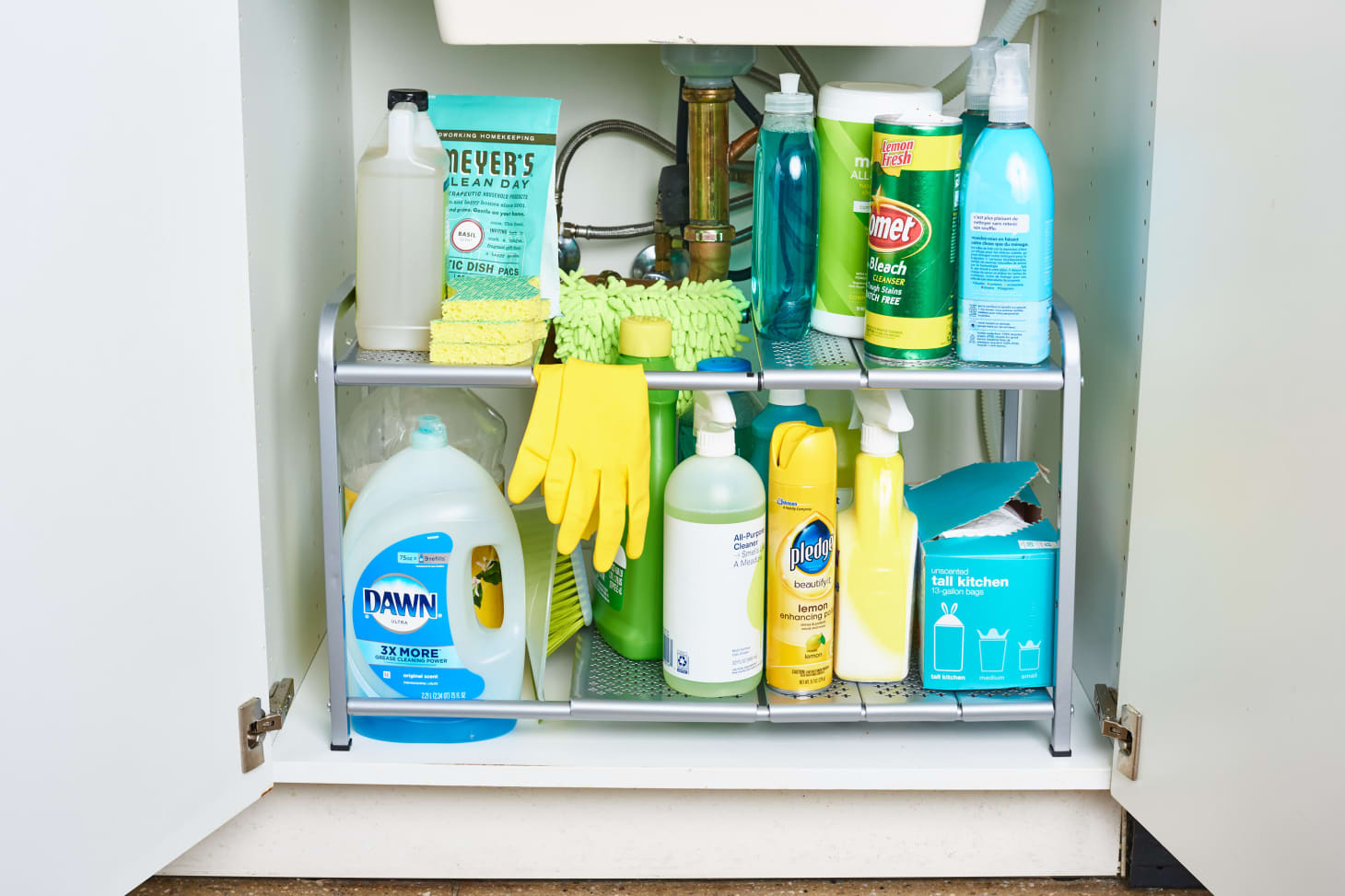
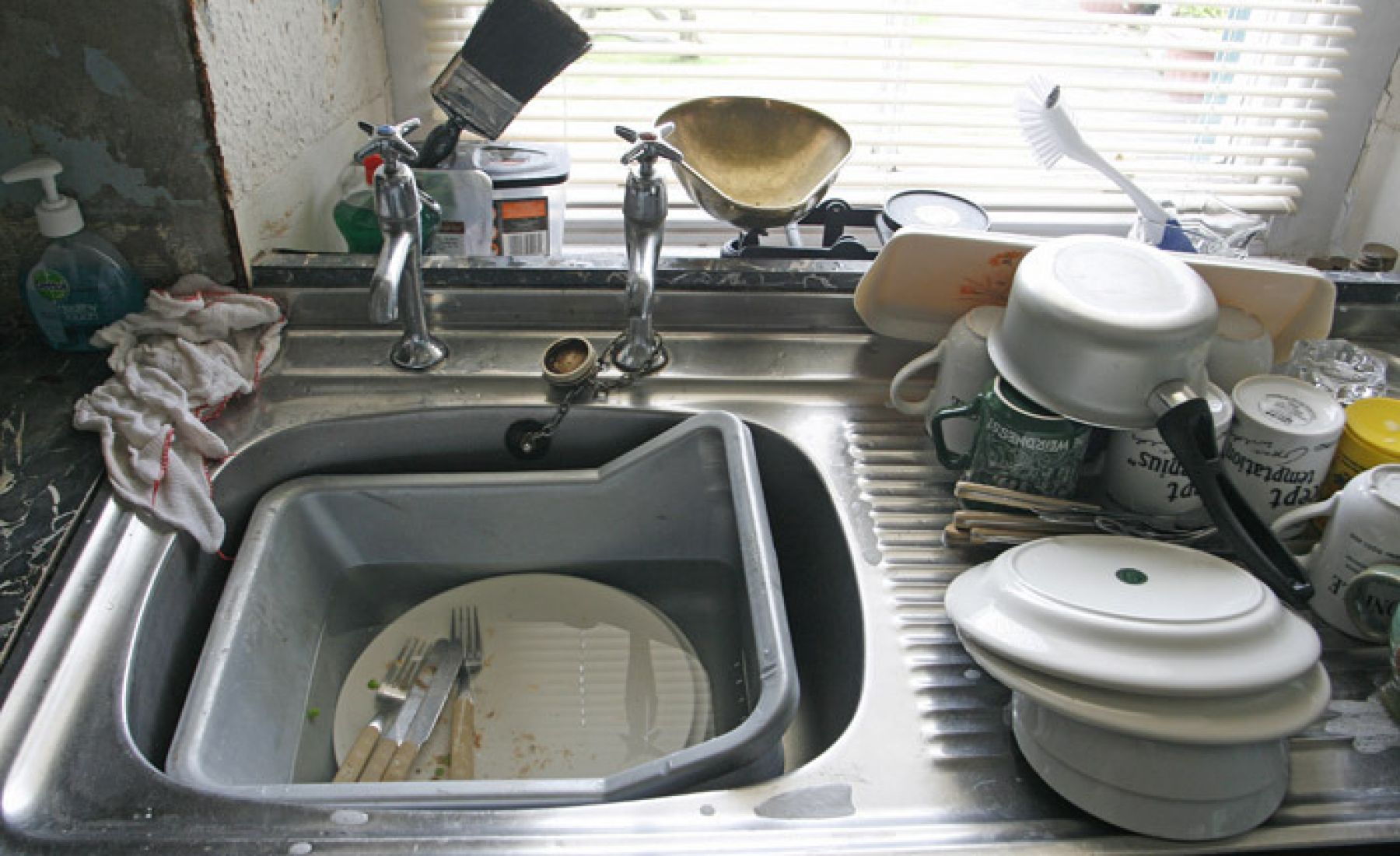
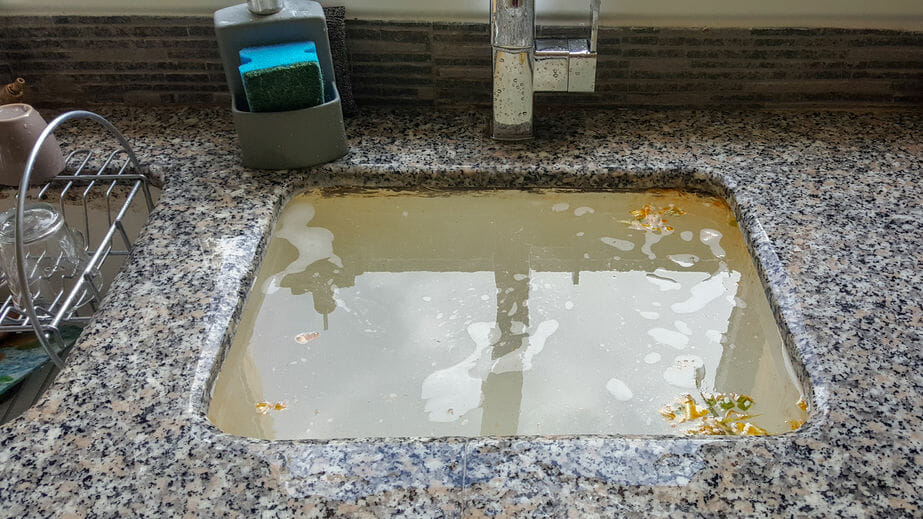


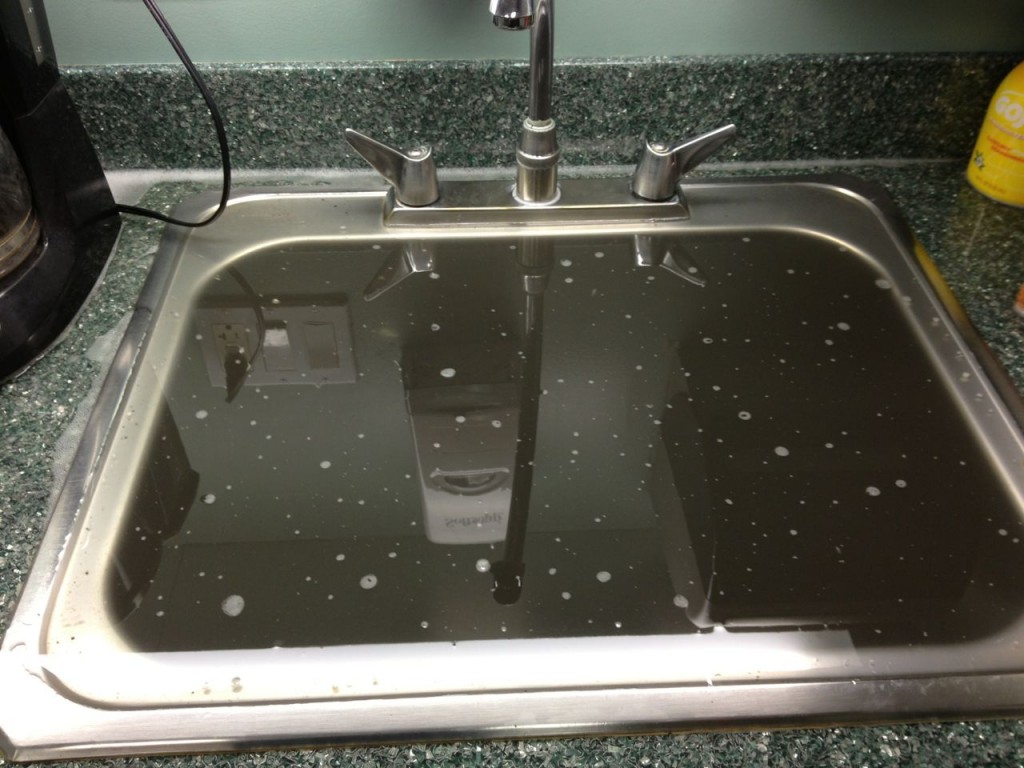








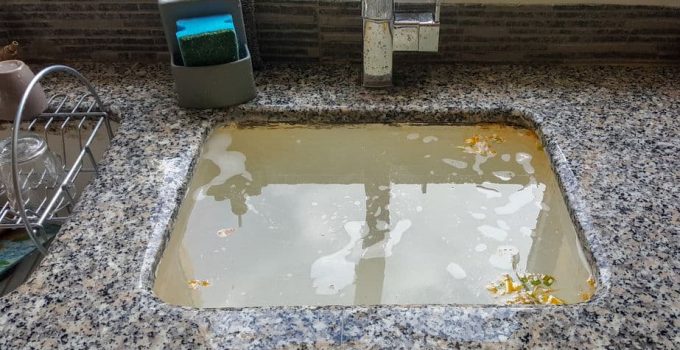





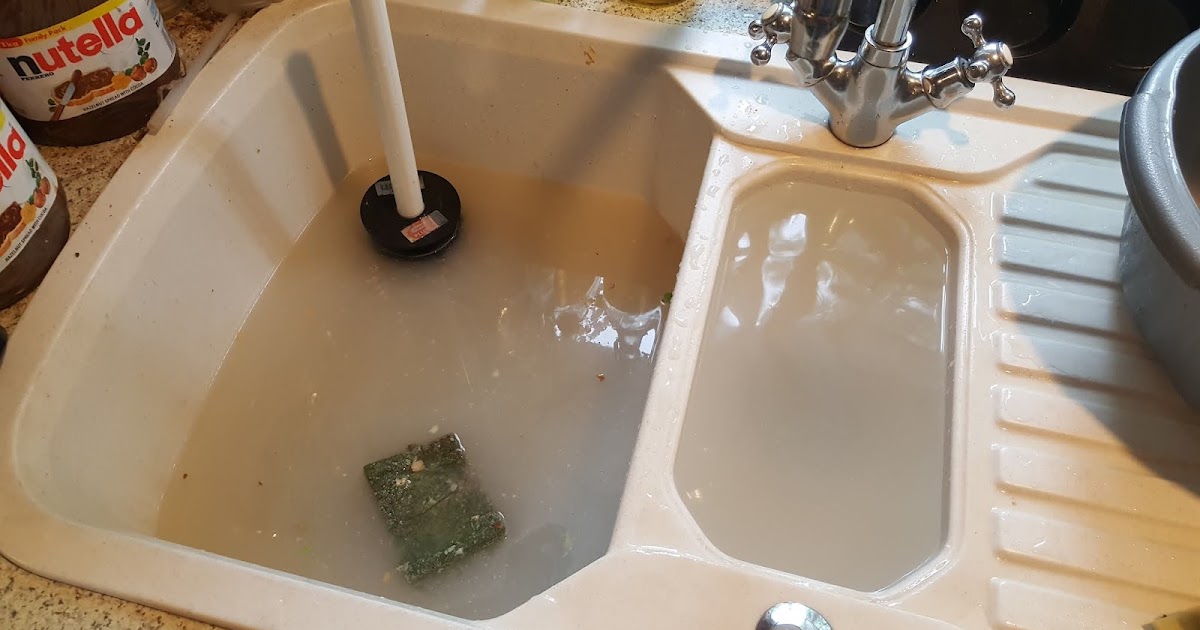




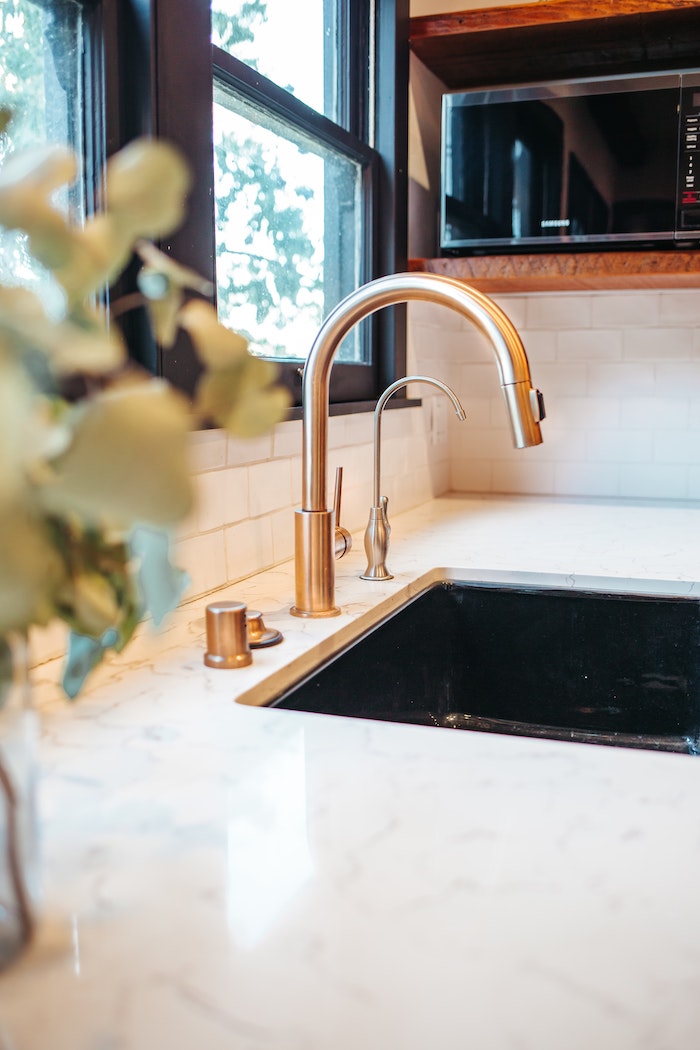





/how-to-install-a-sink-drain-2718789-hero-24e898006ed94c9593a2a268b57989a3.jpg)

